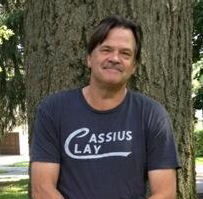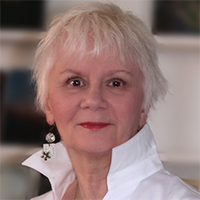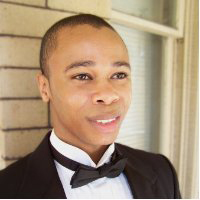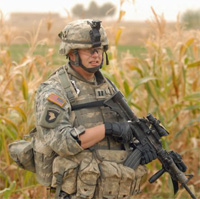Sports Fiction & Essay Contest 2013
Congratulations to the winners of our 2013 Sports Fiction & Essay Contest!
Honorable Mention $100
- Stephen Coyne, Game, Fiction
- Ross Gale, Butterflies and Dinosaurs, Fiction
- Kayla Macduff, Ferocity, Fiction
- David Margolis, If Only Your Golf Clubs Could Speak, Fiction
- Darren Powers, The Missing Fields, Fiction
- Charl Dur’homme, Pushing Tin, Nonfiction
- Scott Latta, In Which I Feign Injury to Get Out of Wrestling Tristan Reed, Nonfiction
- JoDean Nicolette, It’s Working Out, Nonfiction
- Louise Swanson, Getting Schooled, Nonfiction
- Ann Swindell, Payoff, Nonfiction
Thanks to everyone who entered our 2013 Sports Fiction & Essay Contest. We received 371 entries. Our judges, Ellen LaFleche and Jendi Reiter, agreed that this was the strongest batch of submissions we'd seen in several years of judging Winning Writers contests. We had only planned to award a first prize and five honorable mentions in each genre, but decided to add two second prizes because the top four entries on our shortlist were so close in quality.
Our winners this year transported us to places as varied as rural Thailand, a mobbed-up fight club in Michigan, and a raucous inner-city tejo match in Colombia. A consistent theme that emerged was sport as a lens through which to study the passage of time. The best entries moved back and forth with symphonic grace between total immersion in the high-stakes moment and the nostalgic long view of aging and change.
For instance, Darren Powers gives us the entire arc of a family's life through backyard softball games, in a short-short story with the compressed intensity of a poem. Though such games are typically associated with youthful innocence, they spell the end of the sheltered life for the unusual children in Louise Swanson's memoir. JoDean Nicolette's down-and-dirty essay about running an obstacle course shows it's never too late to change your relationship to your body, with a little help from the "Arctic Enema".
The Judging
Assistant Judge Ellen LaFleche narrowed down the entries to about 70 for Winning Writers Editor Jendi Reiter, who picked a shortlist of about 35 for us to discuss together. Because the entries were so strong this year, we reluctantly had to set aside a number of memorable stories and essays that had too many minor flaws.
Inconsistent verb tense was one such showstopper—a piece that started out in first person present, for instance, but accidentally slipped into past tense partway through. Essays with one factual error made us mistrust the other facts that we didn't have time to verify. In fiction, we were critical of poorly punctuated dialogue that didn't match the varied cadence of real speech. Some entries were not as good at timing the introduction of information; the final picture made sense but the puzzle pieces fell into place in a sequence that confused us.
While we aimed for a balanced collection of tragic, uplifting, and humorous winners, we looked less favorably on those entries that ended on a note of despair and meaninglessness. Ann Swindell's essay on winning a high school volleyball championship stood out for its refreshing optimism and equanimity, demonstrating why victory matters but also why it's okay to leave the past behind. Kayla Macduff's tense, provocative story about a karate master's battle for her life questions the myth of the extraordinary individual, on which sports-fandom rests. Ironically perhaps for the judge of a sports-themed contest, Jendi found the most personal resonance with Scott Latta's essay on the torments of a middle-school nerd in gym class. Ellen's note on this one read, "This is so funny that I almost short circuited my keyboard due to tears falling out of my eyes."
Our Winners
In fiction, Olaf Kroneman won first prize for his story "Fight Night". This noir tale of a Mafia-owned boxing club centers on an unusual doctor-patient relationship, through which we see compromised men still trying to live by their peculiar codes of honor. Second prize went to Billy Wayne Coakley for "Muay-Thai". In this tense, painfully beautiful story, a martial arts prodigy battles for her future, but her greatest opponent is her own body as it changes from child to woman.
In nonfiction, Patricia Schultheis won first prize for her essay "Skating to Seventy". This poetic journey through a woman's life traces what ice-skating meant to her as she navigated a childhood disability, changing roles for women, a long marriage and widowhood. Second prize went to Adrian Cole for his essay "Boston You're My Home", a soldier's tribute to Red Sox Nation. Struggling with PTSD that was exacerbated by the April 2013 Boston Marathon bombing, the returning veteran finds that the camaraderie of baseball fandom is the key to his healing.
It was a pleasure to read this year's entries. We can't wait to see what you come up with next year!
Read the press release about the winning entries.
Contest Judges

Jendi Reiter
Jendi Reiter is vice president of Winning Writers, editor of The Best Free Literary Contests, and oversees the Winning Writers literary contests. Jendi is the author of the novel Origin Story (Saddle Road Press, 2024), the short story collection An Incomplete List of My Wishes (Sunshot Press, 2018), the novel Two Natures (Saddle Road Press, 2016), the poetry collections Made Man (Little Red Tree Publishing, 2022), Bullies in Love (Little Red Tree Publishing, 2015), and A Talent for Sadness (Turning Point Books, 2003), and the award-winning poetry chapbooks Swallow (Amsterdam Press, 2009) and Barbie at 50 (Cervena Barva Press, 2010). Awards include a Massachusetts Cultural Council Artists' Grant for Poetry, the 2016 New Letters Prize for Fiction, the 2016 Rainbow Award for Best Gay Contemporary Fiction, the 2015 Wag's Revue Poetry Prize, the 2013 Little Red Tree International Poetry Prize, the 2012 Betsy Colquitt Award for Poetry from Descant magazine, the 2011 James Knudsen Editor's Prize in Fiction from Bayou Magazine, the 2011 OSA Enizagam Award for Fiction, the 2010 Anderbo Poetry Prize, and second prize in the 2010 Iowa Review Awards for Fiction. Jendi's work has appeared in Poetry, The New Criterion, Mudfish, Passages North, Cutthroat, Best American Poetry 1990, and many other publications. See their interviews in RoundPier and Lammergeier.
Photo by Ezra Autumn Wilde
Contest Judges
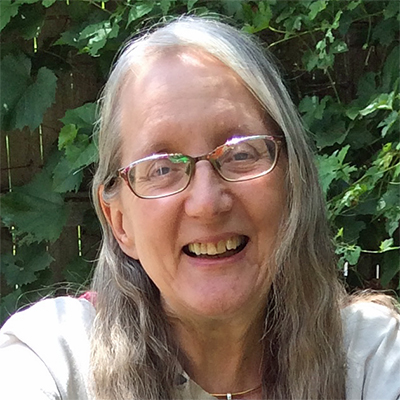
Ellen LaFleche
Ellen LaFleche is a past judge of our North Street Book Prize. She has worked as a journalist and women's health educator in Western Massachusetts. Her manuscript, Workers' Rites, won the Philbrick Poetry Award from the Providence Athenaeum and was published as a chapbook in 2011. Another chapbook, Ovarian, was published in 2011 by the Dallas Poets Community Press, and a third chapbook, Beatrice, about a semi-cloistered nun, was published in 2012 by Tiger's Eye Press. Her poems have been published in Spoon River Poetry Review, Hunger Mountain, New Millennium Writings, The Ledge, Alligator Juniper, Many Mountains Moving, Harpur Palate, Southeast Review, and Naugatuck River Review, among many others. Prose credits include her 2014 Daily Hampshire Gazette article "Taken too soon, at 65: My husband John Clobridge's final days with ALS". She also reviews books for Wordgathering, the online journal of disability poetics. She has won the Ruth Stone Poetry Prize, the New Millennium Poetry Prize (shared with Jim Glenn Thatcher), the DASH Poetry Journal Prize, the Poets on Parnassus Prize for poetry about the medical experience, second prize in The Ledge Poetry Awards, and the Editor's Choice Award for Poetry from Writecorner Press.







